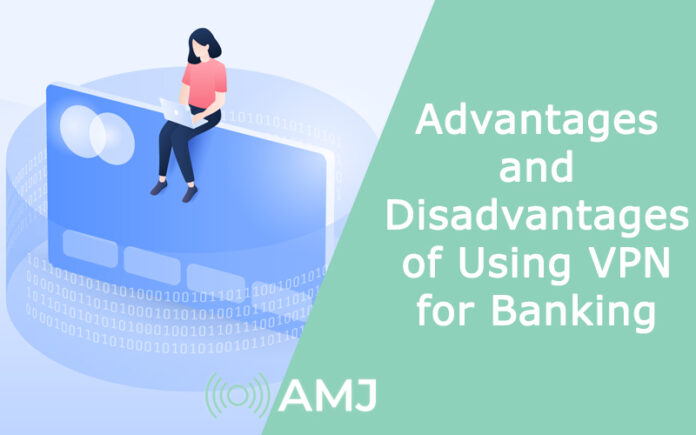With the omnipresence of online banking, the landscape of financial transactions is experiencing a revolutionary transformation. The convenience of accessing bank accounts virtually anytime, anywhere is irrefutable. Nevertheless, the emerging wave of cybercrime mandates robust protective measures for such activities. One pivotal tool in this cybersecurity arsenal is a Virtual Private Network (VPN). So, let’s discuss the pros and cons of using a VPN for digital banking.
Contents
Advantages of Using a VPN for Banking
Increased Security
The prime attraction of VPN use in online banking pivots around bolstered security. Encrypted VPNs cloak your data within a secure digital tunnel that links your device with the web world. This tunnel is virtually impervious to external intrusions, thus stymieing hackers from intercepting your sensitive financial transactions.
Protection on Public Wi-Fi Use
Public Wi-Fi networks, commonly found in cafes or airports, are highly susceptible to cyber invasions. These networks often lack proper security protocols, making your online banking data easy prey. A VPN operates as a digital shield, securing your data from prying eyes and ensuring your banking activities remain private even on public Wi-Fi. For instance, if you are in France using public Wi-Fi at the airport, using a France VPN can protect you from potential danger.
Access to Geo-Restricted Content
Certain banks may impose geo-restrictions on their online services. Accessing your bank account may become challenging if you’re in a different geographical region than your bank. VPNs provide an ingenious solution, offering you the ability to circumnavigate these restrictions and access your bank account virtually from anywhere.
Anonymity
In an era where online privacy is paramount, a VPN serves as a powerful tool for safeguarding your digital identity. VPNs ensure your digital footprint remains untraceable by effectively obfuscating your IP address and geographical location.
Disadvantages of Using a VPN for Banking
Reduced Connection Speeds
VPN use might affect your internet connectivity speed, a potential disadvantage particularly when managing time-sensitive financial transactions online. Nevertheless, premium VPNs generally mitigate this issue with advanced protocols and robust infrastructure that minimize any noticeable speed reduction.
Possible VPN Blockades by Banks
Banks, in their attempt to ensure maximum security, might occasionally block VPN connections. This can be vexing, especially if you’re aiming for secure access to your bank account. A workaround is opting for a VPN provider that boasts an extensive range of server locations.
Risk of Using Free VPNs
Free VPN services may seem attractive, but they often compromise essential security features such as a kill switch, leaving you vulnerable to IP leaks. Moreover, many free VPNs are notorious for selling user data, thus undermining the very privacy they’re supposed to protect.
Risk of Overconfidence
While VPNs significantly augment security and privacy, they are not a panacea for all internet security challenges. Understanding the boundaries and potential downsides of VPN use is crucial to avoid developing a false sense of invulnerability.
Best Practices for Using a VPN for Banking
- Go for a reputable VPN provider that offers a comprehensive range of server locations and robust encryption protocols.
- Shun free VPN services, considering their susceptibility to security breaches and potential data misuse.
- Prioritize using a VPN while accessing your bank account on public Wi-Fi networks.
- Select a VPN location that aligns with your usual residence or consistently use the same VPN location to evade any potential suspicions from your bank.
- Adhere to online banking best practices, including unique and robust password use, two-factor authentication activation, and regular software and device updates.
In a nutshell, the cautious use of a VPN for online banking can substantially boost your data security and privacy, particularly on vulnerable public Wi-Fi networks. However, choosing a credible VPN provider and adhering to the best online banking practices is paramount to ensure your sensitive data remains safeguarded.












![Index of Money Heist [Season 1, 2, 3 & 4 – All Episodes, Cast and Plot] Index of Money Heist](https://www.asiamediajournal.com/wp-content/uploads/2021/05/Index-of-Money-Heist-3-100x70.jpg)